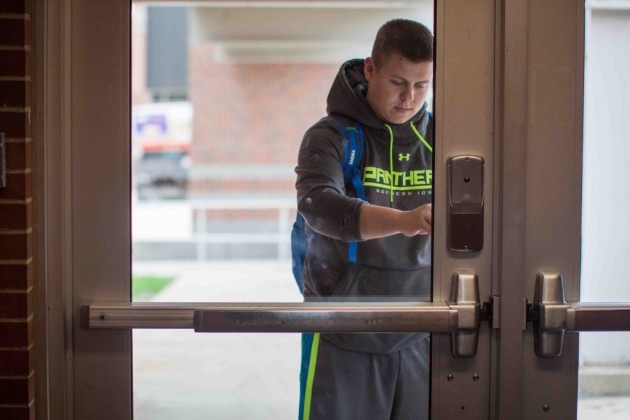Life at UNI residence halls could look different next semester.
All students choosing to live in the traditional dorms (all dorms except Shull, Roth and Panther Village) may become part of a Living-Learning Community because of Department of Residence changes. Moreover, there is a budgetary proposal for the cost of on-campus laundry services to be built into students’ Room and Board costs.
LLCs are specially designated floors within dorms that group students together based on shared interests and goals.
In addition to academic LLCs–-those floors within certain dorms reserved for biology, business, education, music, women’s and gender studies or deciding majors–- there are also LLCs based on classification. These include Springboard and STEP communities.
Springboard is reserved for first-years while STEP is a LLC designed to assist sophomores, juniors and seniors.
Virtually all students in traditional dorms will become members of an LLC.
“We have decided, as a university, to embrace a model called the Student Transition Model by Nancy Schlossberg. It basically says that students, through their college career, would move in, move through and move on,” said Lyn Redington, director of residence life.
The Department of Resident’s decision to embrace this model stems from a weeklong program at Evergreen State College in Olympia, WA called the National Summer Institute on Learning Communities – a program that Redington and nine others attended. DOR members who attended the program concluded that incorporating the model is in UNI’s best interests and drafted a document applying the model to campus dorms.
The model states that students (generally first-years) are in a transitional and exploratory stage, working to discover their interests: this is the “move in” stage.
Students in the “move through” stage (sophomores and juniors) are delving deeper into their majors, focusing and perhaps refining their passion. Generally, seniors are in the “move on” stage, looking forward to beginning their careers and moving on from college life.
“There’s a lot of research out there that speaks to students living together in learning communities–-being supported throughout their college career-–that will enhance their academic success,” Redington said, “and that is why we’re here.”
Part of the Department of Residence’s proposed budget for next year, which is still pending approval from the President and the Board of Regents, is a plan for laundry to be free for on-campus students–meaning that the cost will supplement room and board rates.
The cost to students is predicted to be $5.56 per month; the cumulative total being charged as a one-time fee on top of room and board rates.
“Through all the research, this number is definitely going to cover [the costs], and we have heard overwhelming student support from this. It is not an official policy, but it’s something that the department is seriously exploring. It would be a one-time total fee, and we believe that this will be less than what most students are going to be paying anyway,” said Jared Heitz, English education major and residence hall association president.
For Nate Rondeau, deciding major, $5.56 would be less than what he is currently paying for laundry.
“Each time I do laundry it costs me about $4.50, and I do that three times a month. So I would support the proposal,” Rondeau said.
For others, the DOR’s proposition would increase laundry expenses.
“I hardly ever use the laundry services–maybe once a month, and that’s being generous– so I don’t like [the proposal]. I don’t like that at all,” said Jayne McKeon, art and psychology major.
Jenna Carey, early childhood and elementary education double major, believes that those who hardly use the services are more likely members of the minority.
“I use [the laundry services] about twice a month, but I know that I’m kind of an odd case. For most people, I think it would be a good idea,” Carey said.
Additional DOR proposals include employing full-time custodians seven days a week (as opposed to six) and purchasing lofts for Rider, Noehren, Bender and Dancer.
Official changes for the upcoming academic year can be expected soon after the Board of Regents’s March meeting.
“These decisions aren’t being made in a vacuum–we’ve really listened and paid attention to student voices,” Redington said.









